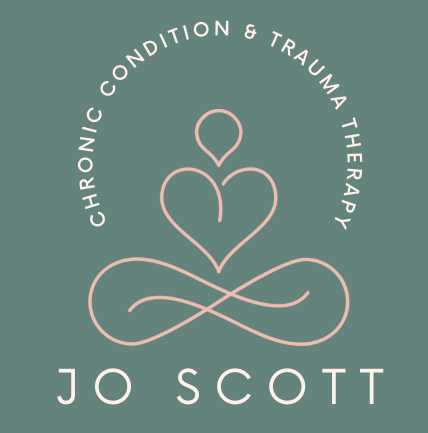
Chronic Illness Therapy
Chronic Illness & Therapy: Finding a Way Forward
Living with a chronic illness is more than just managing symptoms—it can affect every part of your life. The daily reality of pain, fatigue, medical appointments, and uncertainty can feel exhausting, isolating, and, at times, overwhelming. You may grieve the life you once had, struggle to be understood by others, or feel dismissed by the medical system. The weight of it all can leave you feeling helpless, anxious, or disconnected from yourself and the world around you.
Chronic illness does not just affect the body—it affects the mind and spirit, too. Many people living with long-term health conditions experience trauma, whether from medical neglect, repeated misdiagnoses, painful procedures, or the loss of control over their own bodies. When the body does not feel like a safe place to be, it can lead to patterns of hypervigilance, dissociation, or emotional numbness. The exhaustion of navigating an unpredictable condition—along with the loneliness that often comes with it—can take a deep toll.
Therapy offers a space where you do not have to minimise your pain or explain why it is hard. Here, you do not have to push through alone.
How Therapy Can Help
I use a range of therapeutic approaches tailored to your individual needs, offering gentle, compassionate support at a pace that feels safe for you. Therapy for chronic illness is not about changing how you feel about your condition overnight—it is about learning how to live alongside it with more ease, self-compassion, and emotional resilience.
The following are some of the approaches that may be incorporated into our work together:
Deep Brain Reorienting (DBR) – Chronic illness can create deep, automatic patterns of fear and distress in the nervous system. DBR works at the level of the brainstem to gently process and resolve these stored responses, helping you feel safer in your body.
Brainspotting (BSP) — Brainspotting can be a powerful tool for alleviating chronic pain by tapping into the mind–body connection and activating the brain’s natural healing systems. Anchored in the Resource Model, it uses a brainspot—a specific eye position linked to a sense of internal calm—as a neurological resource that helps clients stay grounded and within their "window of tolerance" while processing pain-related trauma
Internal Family Systems (IFS) – Many people with chronic illness have parts of themselves that feel frustrated, exhausted, or ashamed. IFS helps explore these internal dynamics, allowing for greater self-compassion and reducing internal conflict around your condition.
Mindfulness Therapy – Living with chronic illness often means navigating unpredictable symptoms. Mindfulness can help you reconnect with the present moment, regulate emotional distress, and cultivate a sense of internal steadiness even in the face of uncertainty.
Narrative Therapy – When illness changes your life, it can feel like it has rewritten your story. Narrative therapy helps you explore the beliefs and identities shaped by illness, empowering you to reclaim your voice and sense of self.
Grief and Loss Counselling – Chronic illness involves ongoing grief—the loss of who you were, what you could do, and the life you once imagined. Therapy provides space to process these losses and find meaning within them.
You Are More Than Your Illness
Your illness is a part of your life, but it does not define who you are. Therapy provides a space to acknowledge the full depth of your experience—the grief, the frustration, the fear, and the hope. It is a space where you are not expected to be strong all the time, where you do not have to minimise your pain, and where you can begin to heal—not by “fixing” yourself, but by learning to live in a way that honours your body, your emotions, and your truth.
If you are living with a chronic illness and looking for support, I invite you to reach out for a free phone consultation. You do not have to do this alone.



